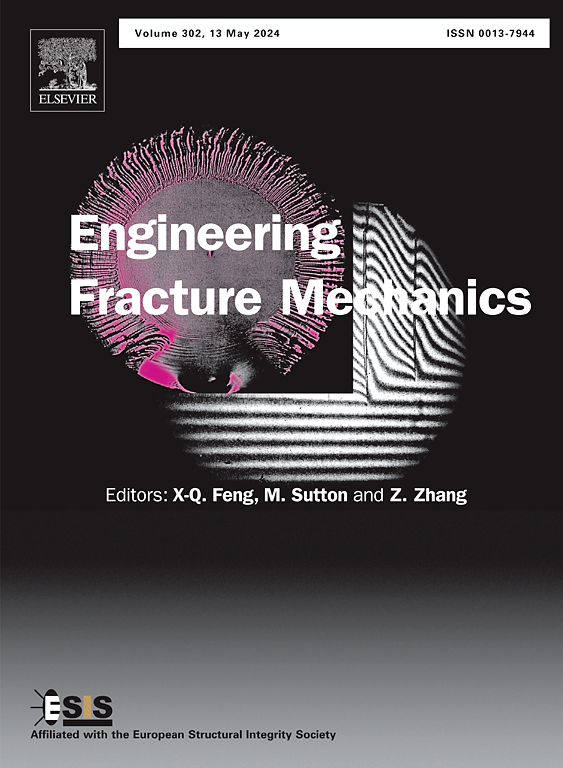Machine learning assisted calibration of a fatigue crack growth model considering temperature and stress ratio conditions
IF 4.7
2区 工程技术
Q1 MECHANICS
引用次数: 0
Abstract
Complex working conditions significantly influence fatigue crack growth (FCG), especially the temperature and stress ratio conditions. To describe the influence of temperature and stress ratio conditions on FCG behaviors, the corresponding macroscopic experiments and microscopic observations were performed. Through the introduction of the correction terms of temperature and stress ratio to Paris law, the extended Paris model was built in this study to enhance the predictive ability of FCG behaviors under working conditions. The parameters of FCG model are mainly calibrated by the method of fitting experimental curves, the size and dispersion of data for fitting seriously affects the accuracy of parameter calibration and subsequent FCG prediction. To improve the efficiency and accuracy of parameter calibration, a machine learning assisted calibration method was established to identify the parameters of the proposed model. The good agreement between prediction and experimental results of fatigue crack growth rate curves proves the rationality of the proposed FCG model and the parameter calibration method.
求助全文
约1分钟内获得全文
求助全文
来源期刊
CiteScore
8.70
自引率
13.00%
发文量
606
审稿时长
74 days
期刊介绍:
EFM covers a broad range of topics in fracture mechanics to be of interest and use to both researchers and practitioners. Contributions are welcome which address the fracture behavior of conventional engineering material systems as well as newly emerging material systems. Contributions on developments in the areas of mechanics and materials science strongly related to fracture mechanics are also welcome. Papers on fatigue are welcome if they treat the fatigue process using the methods of fracture mechanics.

 求助内容:
求助内容: 应助结果提醒方式:
应助结果提醒方式:


